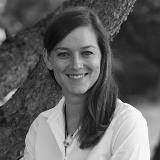
Sara Lowes
Appointment
CIFAR Azrieli Global Scholar 2017-2019
Institutions, Organizations & Growth
Connect
About
Sara Lowes examines the role of institutions and culture in economic development and their implications for development policy.
She uses a variety of research methods, combining fieldwork, the collection of archival data and insights from psychology, history and anthropology. Lowes’ research seeks to understand the origin of various institutional and cultural arrangements, the relationship between institutions and culture, and their impacts on economic development. In recent work she examines how historical exposure to extractive institutions affects present-day development by undermining village institutions and changing pro-social norms; how matrilineal (relative to patrilineal) kinship systems affect spousal co-operation and outcomes for women and children; and how the under-utilization of health services in parts of sub-Saharan Africa can be partially explained by historical medical campaigns conducted by the French military. Her research suggests that accounting for social structure, history and local institutions has important implications for the efficacy of policy. She has ongoing research projects in Kenya and the Democratic Republic of Congo.
Awards
- National Science Foundation Graduate Research Fellowship
- Theodore H. Ashford Dissertation Fellow
Relevant Publications
Lowes, S. et al. “The Evolution of Culture and Institutions: Evidence from the Kuba Kingdom.” Econometrica 85, no. 4 (2017): 1065–1091.
Lowes, S. et al. “Understanding Ethnic Identity in Africa: Evidence from the Implicit Association Test (IAT).” American Economic Review Papers and Proceedings 105, no. 5 (2015): 340–45.